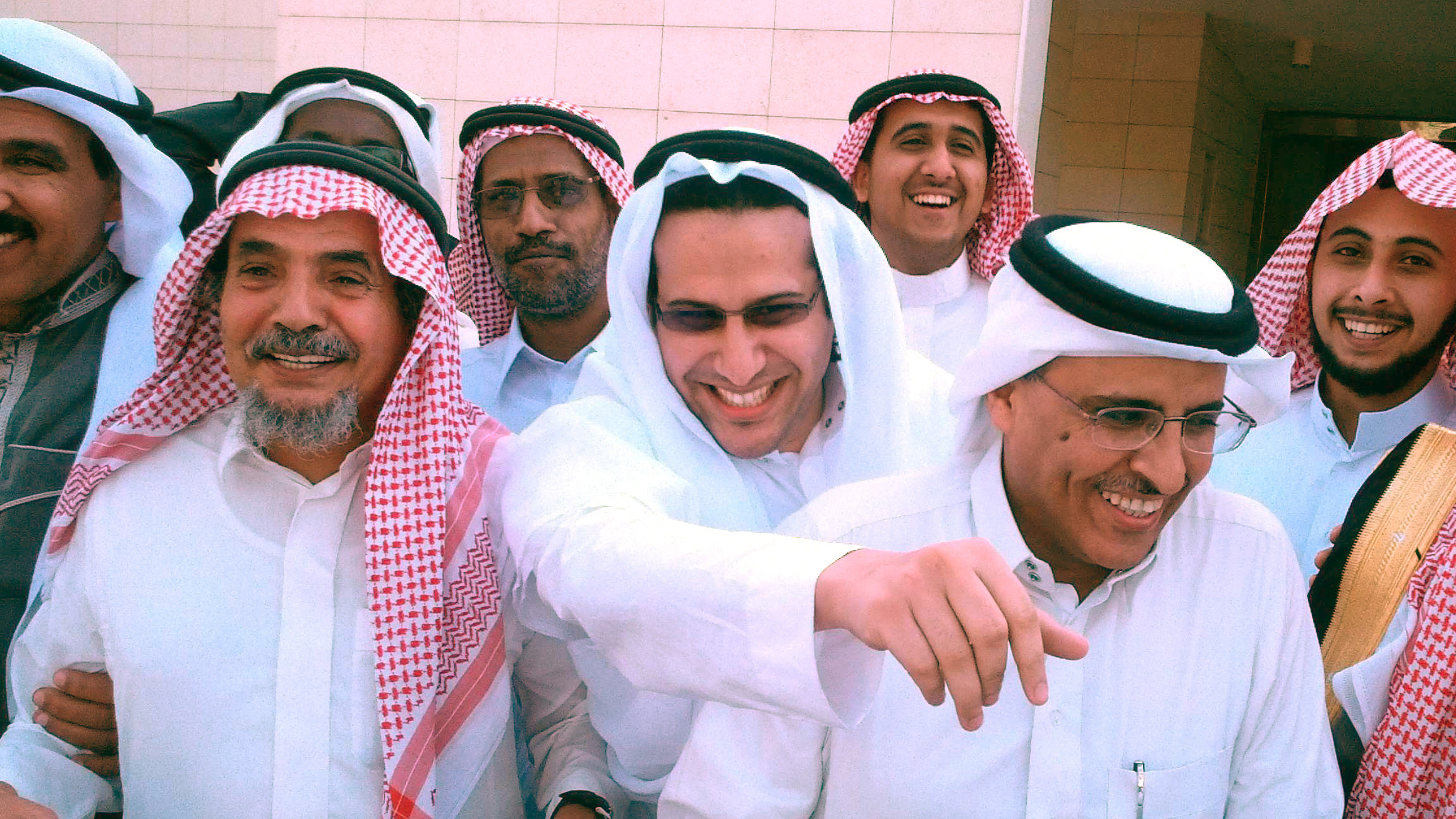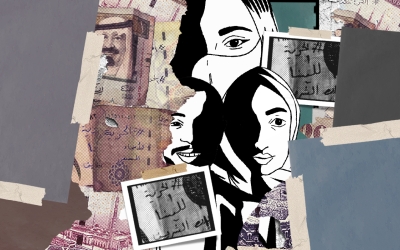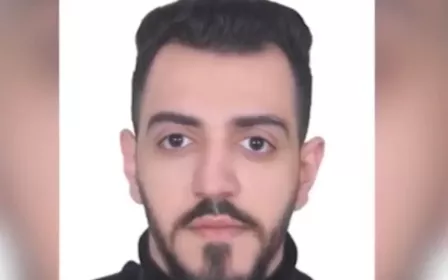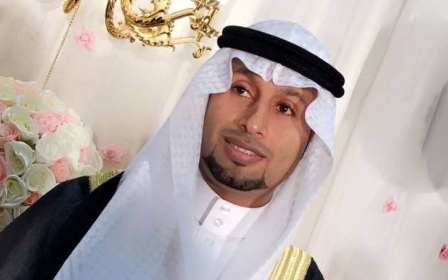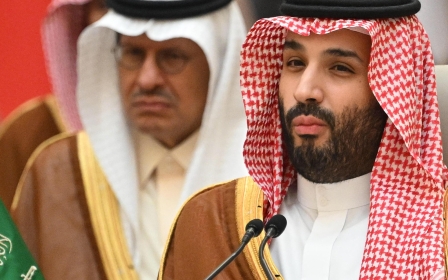Saudi Arabia: Family of imprisoned and forcibly disappeared activist seek answers
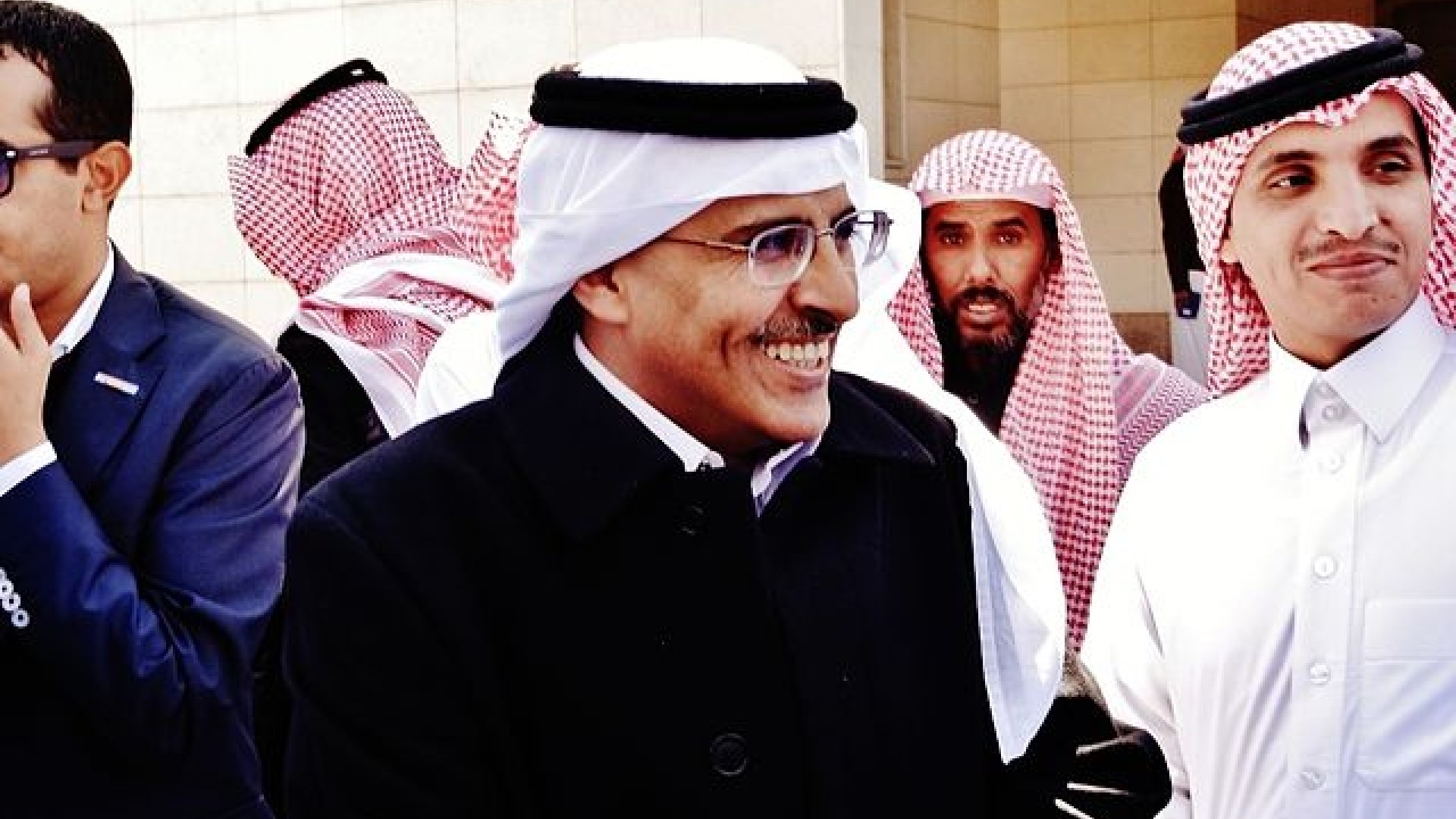
As the Saudi Arabian political prisoner Mohammad al-Qahtani prepared to leave jail following his 10-year sentence, he asked his wife, Maha al-Qahtani, to get him an iPhone and two sweaters from Indiana University, where he received his PhD.
Maha al-Qahtani, speaking to him from the United States where she fled with their children a month before her husband's arrest on 9 March 2013, went on to discuss preparations for his release that was scheduled in late November last year.
A month before the long-awaited date, Mohammad disappeared.
"I asked [the prison administration] if he was okay, and in a harsh tone, they responded: 'We don't know what's going on with this man. We will let you know what happens.'" Maha told Middle East Eye.
New MEE newsletter: Jerusalem Dispatch
Sign up to get the latest insights and analysis on Israel-Palestine, alongside Turkey Unpacked and other MEE newsletters
"And that's it, nobody answered the phone again. Nobody called."
'We used to speak almost daily, and suddenly, he stopped calling'
- Maha al-Qahtani, wife of Mohammad al-Qahtani
It has been more than a hundred days since Maha last heard from her husband or has been informed of his whereabouts.
The leading human rights activist was arrested in 2012 for his role in co-founding the Saudi Civil and Political Rights Association (ACPRA), a now-disbanded organisation.
Along with other members of the group, al-Qahtani was handed a heavy sentence of 10 years in prison in 2013.
When he wasn't released on 22 November, the day his sentence ended, human rights organisations and his family became increasingly concerned about his fate.
"The last time I spoke to him was 23 October 2022," Maha said. "We used to speak almost daily, and suddenly, he stopped calling."
'Unjust' sentences
Before his arrest, Mohammad was a prominent economics professor, political activist, and one of the founding members of ACPRA, known as Hasm in Arabic, in 2009.
Hasm was a pioneering group in Saudi civil society, known for its independence from any affiliations with the government. It focused on supporting "prisoners of conscience" and exposing torture in Saudi prisons among other things.
Al-Qahtani, along with the group's co-founder Abdullah al-Hamid and prominent member Waleed Abu al-Khair were awarded the Right Livelihood Award in 2018, for "their visionary and courageous efforts, guided by universal human rights principles, to reform the totalitarian political system in Saudi Arabia."
However, Hasm's impact was short-lived.
In 2012, a court banned the group and handed co-founders al-Qahtani and al-Hamid 10 and 11-year prison sentences and 10 and five-year travel bans, respectively. They were accused of various charges that included "planting seeds of sedition", "breaking allegiance to the ruler", "questioning the integrity of officials", "seeking to disrupt security and inciting disorder" and "instigating international organisations against the kingdom".
Several other founding members of Hasm are also behind bars, including Abu al-Khair and Mohammed al-Bajadi.
Maha said the sentence felt like a "weird dream" she hoped would end soon. By the time the court issued its verdict, she had left the country fearing the government would weaponise her against her husband.
Heavily pregnant, she took her two other children to the US - the family had once lived there while Mohammad was finishing his PhD in economics from Indiana University between 1995-2002.
"I couldn't tell all my children [what happened]. When I told the youngest two weeks later, they were shocked," said Maha, speaking to MEE on the phone.
"When the judge first sentenced my husband, my children asked me 'Does he fear Allah?'. How can a Muslim judge do this and behave like this and be this unjust?"
Retrial and health concerns
Now that there is no news about Mohammad, rights groups fear for his health and the possibility of retrial, especially considering the fate of some previous political prisoners in the kingdom.
Mohammad's colleague Hamid, who has been described as a "unique activist" in Saudi Arabia's modern history, died in prison in 2020, three years before his release date. Human rights groups said his death was the result of Saudi authorities' "deliberate medical neglect".
Mohammad has also faced medical negligence and threats to his safety in prison, according to ALQST human rights group.
In May 2022, he was attacked by an inmate with a mental illness. Prison administration was "deliberately placing prisoners of conscience" in a wing for inmates with mental disorders, thus posing a risk to their lives, the London-based group said.
Mohammad has also been denied hospital check-ups and treatment for a skin disease he was suffering from.
Then there's the threat of retrial, which can explain the authorities' "concealment" of his fate, according to Adel al-Saeed, an activist with the European Saudi Organisation for Human Rights (ESOHR).
It wouldn't be the first time that Saudi Arabia retried human rights activists.
Last year, activist Mohammed al-Rabiah, who had completed his initial six-year prison sentence, was retried in October and sentenced to 17 years in prison.
"It is clear that Crown Prince Mohammed bin Salman is taking advantage of the world's preoccupation with the Russian-Ukrainian war by liquidating dissidents at home and increasing prison sentences," Saeed told MEE, refering to a recent rise in "exceptionally harsh" prison sentences given to activists in the kingdom.
The monitoring group Prisoners of Conscience told MEE that enforced disappearance of Saudi Arabian political prisoners, even after the end of their sentences, was "a known method used by the kingdom's authorities to clamp down on the detainees, their families, and the public".
'2023 threatens to be grim'
Saudi Arabia has a long history of cracking down on peaceful dissent and activism. However, since Mohammed bin Salman became crown prince and de facto ruler in 2017, authorities have been accused of carrying out an "unprecedented" policy of "systematic" repression.
In its annual report of the human rights situation in Saudi Arabia last year, ESOHR said that global issues in 2022, such as the energy crises and the war in Ukraine, has allowed for the removal of the "diplomatic embargo" imposed on Crown Prince Mohammed bin Salman following the murder of MEE and Washington Post columnist Jamal Khashoggi in 2018.
Emboldened by the lack of international scrutiny, the "level of oppression" by Saudi authorities last year has increased, the Berlin-based group said, warning that the year "2023 threatens to be grim".
Joshua Cooper, the Deputy Executive Director at ALQST, said the recent "intensified repression" showed "the cost of impunity" offered to Prince Mohammed in 2022.
"The Saudi authorities are continuing to brazenly clamp down on opposition voices, including by imposing jail sentences against them of unprecedented severity, detaining them long after the expiry of their prison sentences, and subjecting them to arbitrary bans on travel, work and social media activity when released," Cooper told MEE.
"This flies in the face of their claims of liberalising reform," he added.
'There is no explanation'
The signs of civil and political repression under Mohammed bin Salman's rule were clear from the start.
Nearly three months after his ascension to power in June 2017, Saudi police arrested dozens of preachers, academics, journalists, businesspeople and others in a sweeping crackdown.
Described as "prisoners of conscience", many of them still await sentencing while some face the death penalty. Saudi officials say there are no political prisoners in the country.
Among them was Awad al-Qarni, a prominent scholar who faces the death penalty on charges that include using Twitter to "to express his opinions".
"The violations of the government of Saudi Crown Prince Mohammed bin Salman crossed all red lines," al-Qarni's son Nasser, who fled to the UK in 2022, told MEE.
Among the charges al-Qarni faces is his position on "unfair judgements against other political detainees", according to Nasser.
"If people like Dr al-Qahtani had been in another country, they would have held a privileged position for their academic work and peaceful human rights struggle," he added.
'There is no explanation for it. I don't know what he'd done to deserve 10 years'
- Maha al-Qahtani
For Maha, the "injustice" is unbearable.
"There is no explanation for it. I don't know what he'd done to deserve 10 years," she told MEE, recalling the diffecult years she and their children have had to endure with Mohammad behind bars.
"He's involved with his children. Even if he's in prison, he's trying to be close to them," she explained.
His soft spot is Leyla, the youngest of the three, who he has yet to meet.
"He spoils Layla too much," said Maha while crying.
"If Leyla wants something, she knows where to go, and her father never says no. That's the kind of man my husband is. And now they can't even speak with him on the phone."
This article is available in French on Middle East Eye French edition.
Middle East Eye delivers independent and unrivalled coverage and analysis of the Middle East, North Africa and beyond. To learn more about republishing this content and the associated fees, please fill out this form. More about MEE can be found here.


